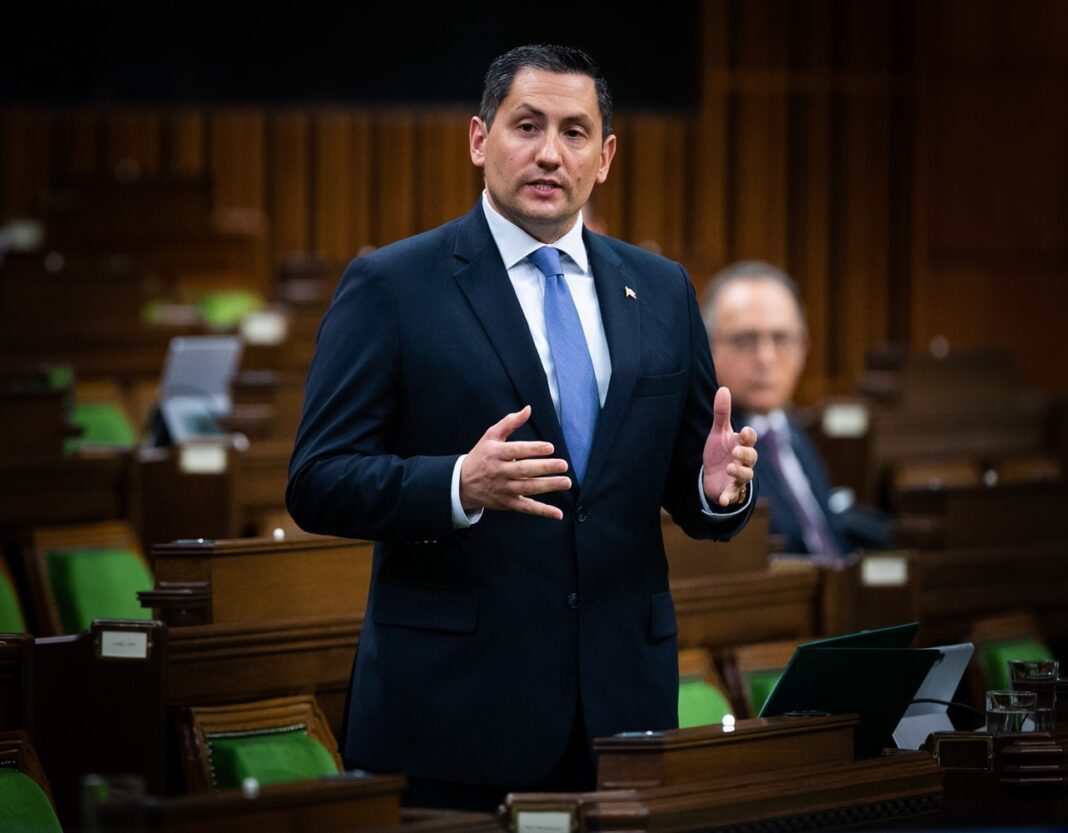After spending the past two years postpandemic advocating for greater mental health support for people in Haliburton County, Point in Time executive director Marg Cox has lauded recently-tabled federal legislation calling for increased access to care in urban and rural areas nationwide.
Courtenay-Alberni MP Gord Johns, a member of the NDP caucus, introduced Bill C-414, the Mental Health and Substance Use Parity Act, on Oct. 10. If passed, the bill will amend the Canada Health Act to expand the definition of insured services to include community-based mental health addictions and substance use supports.
The bill received first reading on World Mental Health Day, with Johns saying it could eventually open the door for people to receive services such as counselling and psychotherapy through their public health insurance plans.
Currently, provincial and territorial health plans are only required to cover mental health and substance use health services prescribed by physicians, or in hospitals deemed medically necessary.
Because of the lack of public coverage, Johns said millions of Canadians do not get the care they need.
“This landmark legislation would begin to address the disparity between mental and physical health in our health care system by creating a federal requirement for provinces and territories to include coverage of community-based support in their health insurance plans and to ensure that timely, inclusive, and accessible care is enshrined into law,” Johns said when tabling the bill.
Cox agreed existing universal mental health services are “very limited.” She hopes any additional funding would also include expansions to services provided by nonprofits such as Point in Time.
Demand for service at the organization’s Youth Wellness Hub has skyrocketed since 2020, with the space recording around 2,000 visits for drop-ins and other skills and wellbeing activities between April 2023 and March 2024. They have seen more than 230 unique youth accessing clinical services.
A full-time nurse practitioner assists with referrals and prescriptions, while offering advice on how to improve physical and mental health. Cox said there’s also virtual access to a psychiatrist, while counselling for mental health and substance use issues is also available.
Should the bill receive the necessary support – it needs to be debated by politicians in a second reading in the House of Commons, be progressed to the committee stage for further review and analysis, pass a majority vote at third reading, and receive final approval at the Senate – Cox hopes the next step is fending off further privatization of Canada’s health care sector and incentivizing rural workers to stay in their communities.
She believes the stigma around mental health and substance use issues still looms large, especially in small communities.
“That’s why we’re in total support – people currently can’t access services because they aren’t covered by their health insurance,” Cox said. “They should be just as accessible and be on par with physical health services we all enjoy… if the problem was an [epidemic] of broken bones or cancer diagnoses people would definitely be sharing what’s going on.”
Schmale support
Haliburton-Kawartha Lakes-Brock MP Jamie Schmale indicated he would be prepared to support the bill. “Unfortunately, more Canadians are grappling with depression, anxiety and other mental health conditions — a problem that has only gotten worse since the pandemic,” he said.
“Statistics released in 2021 tell us that one in five people in this country have been diagnosed with symptoms of depression, anxiety or post-traumatic stress disorder. Sadly, the health-care system isn’t well-equipped to address such high levels of mental distress.
“During the 2021 federal election, I proudly campaigned on a commitment to increase the Canada Health Transfer by six per cent each year for the next 10 years that would pump $60 billion into provincial jurisdictions and help to boost mental health support. The goal was to ensure the new federal money would be used to help Canadians receive mental health treatment every year while also reducing wait times.
“Conservatives also had a plan to encourage employers to add mental health coverage to their employee benefit plans by offering a 25 per cent tax credit for three years to offset any additional costs incurred. The credit would also be available to firms that boost the coverage they already offer workers.”
Schmale said mental health is a serious issue and needs the focus of all levels of government and he will be closely following Bill C-414 in the House of Commons and participate in debate should it come to the floor.
As of Aug. 31, the Haliburton, Kawartha Lakes, Pine Ridge district health unit estimates there have been 224 hospitalizations due to drug overdose in 2024, with 36 suspected deaths.
Jack Veitch of the Canadian Mental Health Association Haliburton, Kawartha, Pine Ridge said any move to increase access to mental health and substance use supports would be a positive.
“The more services, the more variety of care and support we can make available to the population, the more likely we’re going to see success for different people,” Veitch said. “I’m not sure to what extent this will happen, but to see that people are actively looking for a new solution to some real problems is exciting.”





